
Information on Hives
Hives is an allergic reaction that gets manifested in the humanbody. Hives is actually a skin rash and it is almost always connected to anallergy or an allergic reaction. Hives can be characterized by the raised circularwelts that get formed on the skin surface. These rashes are usually very itchyand they commonly appear in blotches on the surface of the skin.
They may occurvirtually anywhere on the body. The most commonly affected areas usuallyinclude the limbs, trunk and throat. Hives can be caused by several differentfactors and medical conditions including various types of allergic reactions tofood, bee stings, insect bites and also allergic reactions to pollen or certaintypes of medications. Hives can be acute or chronic, depending on the durationfor which the unpleasant rashes last.
Symptoms of Hives
The most characteristic and the most visible symptom ofhives is the appearance of skin rashes. The skin rashes may be characterized byred or white wheals, welts or swellings which may or may not be raised andtheir sizes may also vary greatly. Sometimes the wheal may only be a small spotwhile in some other cases one single welt may be covering a larger area of theskin surface.
In most cases the rashes are accompanied by redness, stingingsensations and burning sensations at the affected area. Quite often the patientmay experience itchiness which can lead to the skin getting even more raised andred, due to itching. Welts may get joined, they may spread in a uniform mannerand they may even get bigger.
They also may be disappearing and reappearingagain. The welt center gets white when pressed and that occurrence is referredto as blanching. All the aforementioned symptoms need to be treated withantihistamine medications. Hives may also sometimes be associated withangioedema. It is a medical condition in which the deeper layers of the skinget affected as well.
The welts appear as huge swellings or blisters and theaffected area is usually affiliated with warmth and painful sensations. Edemamay affect the functioning of the internal organs below it, so it can causedifficulties in breathing.
Such cases may require surgical procedures such astracheostomy. Itching may sometimes lead to the formation of open wounds andultimately different types of infections. Hives may also interfere with theproper function of the immune system. Rare cases have also included symptomssuch as hay fever, indigestion and difficulty in eating.


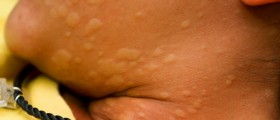
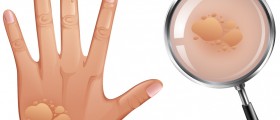
-Causes,-Symptoms-And-Diagnosis_f_280x120.jpg)


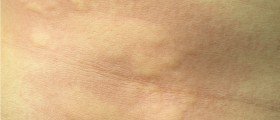
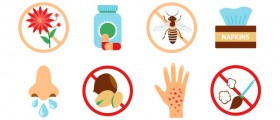







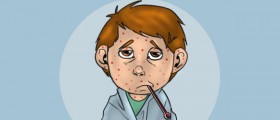
Your thoughts on this
Loading...